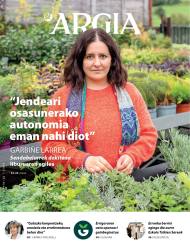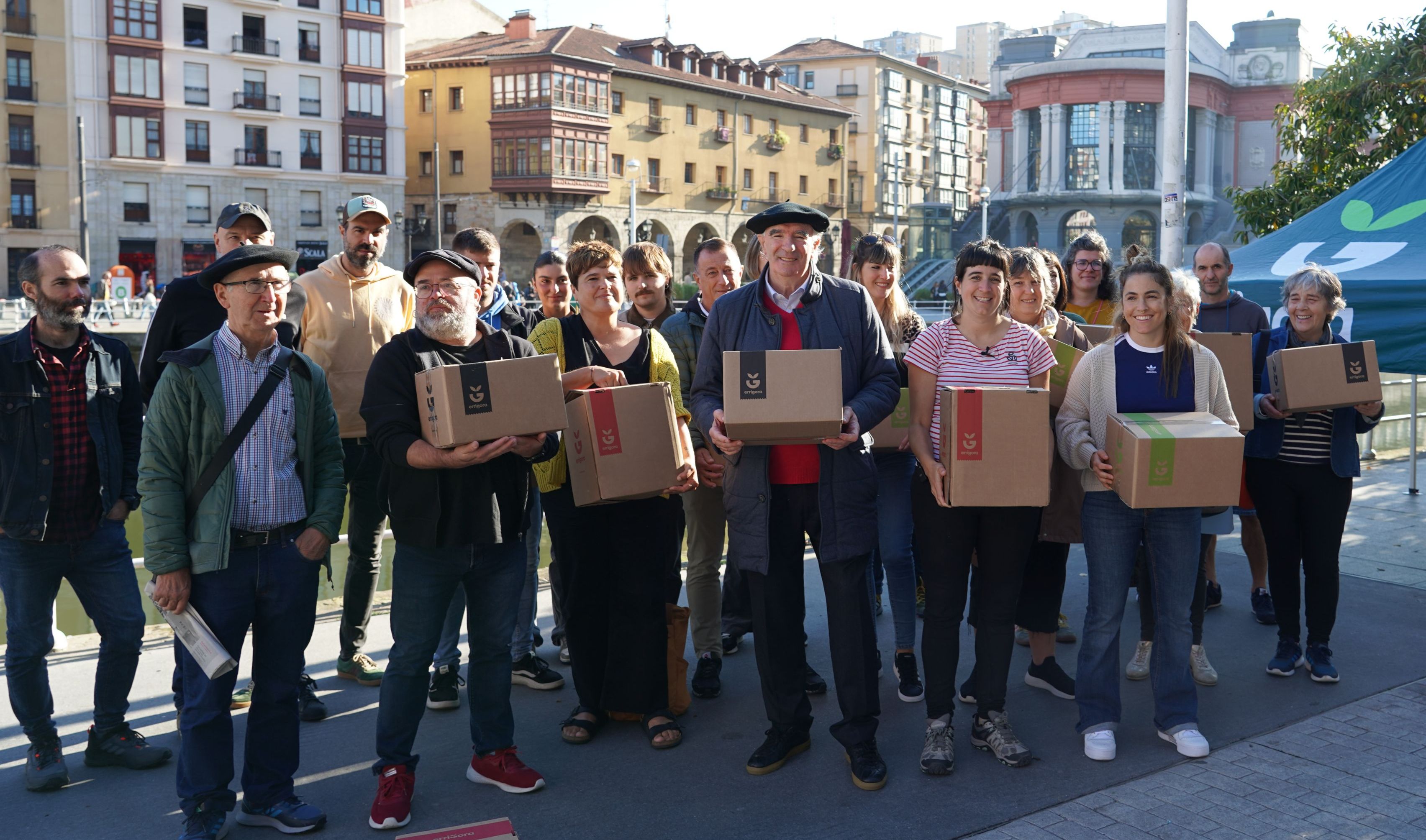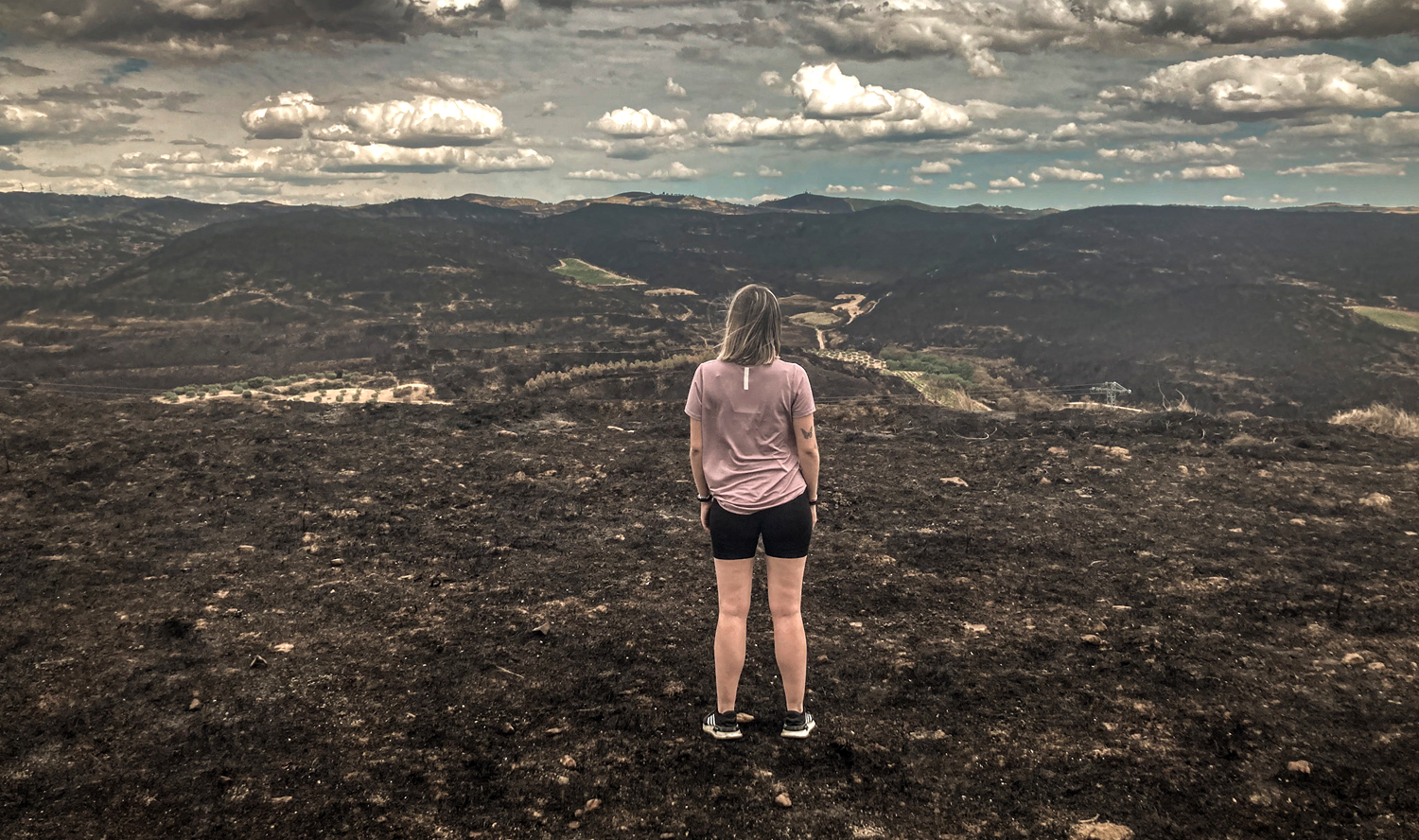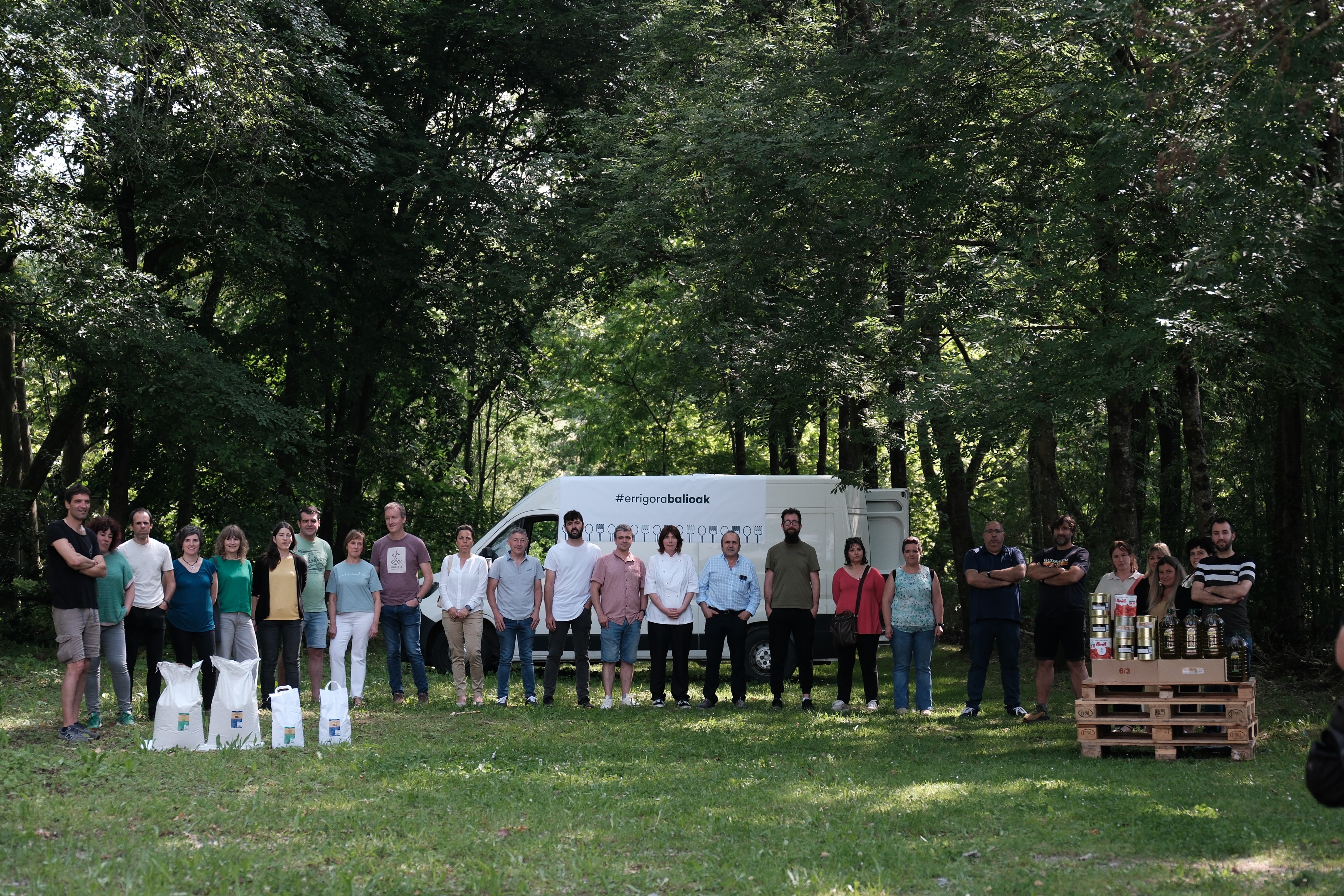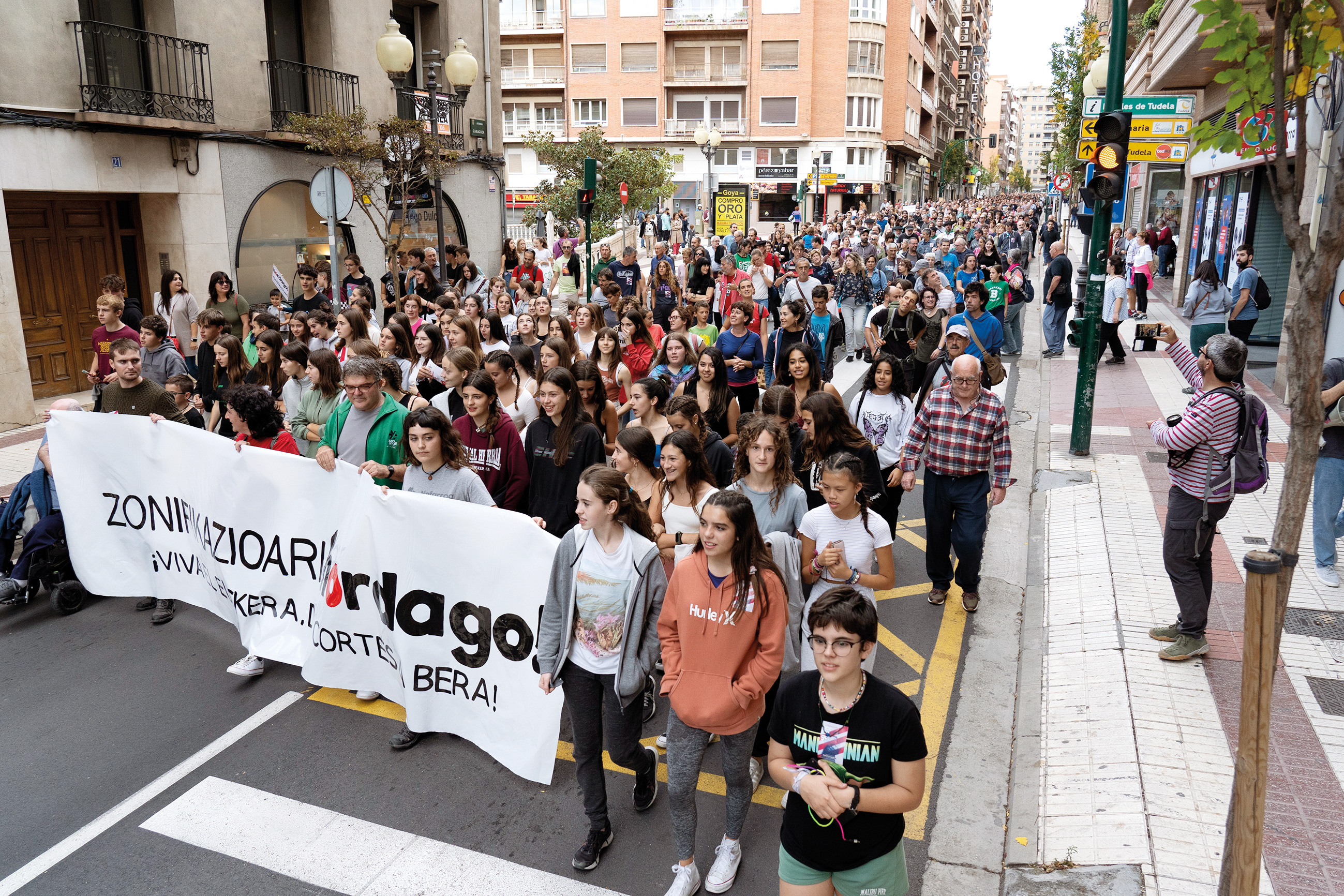The other crop of the rubric: Basque plans, butters, football teams...
- From town to village, from region to region, the citizens have been asked what they would need to give the bellows to the Basque country. The answers have been very varied: butters, Euskera plans, bertsolaris classes, football team, Euskera days, etc. Two significant figures: this year will be eighteen butters in central and southern Navarre, and by 2023 the 25 producers of the Errigora project will have an Euskera plan.
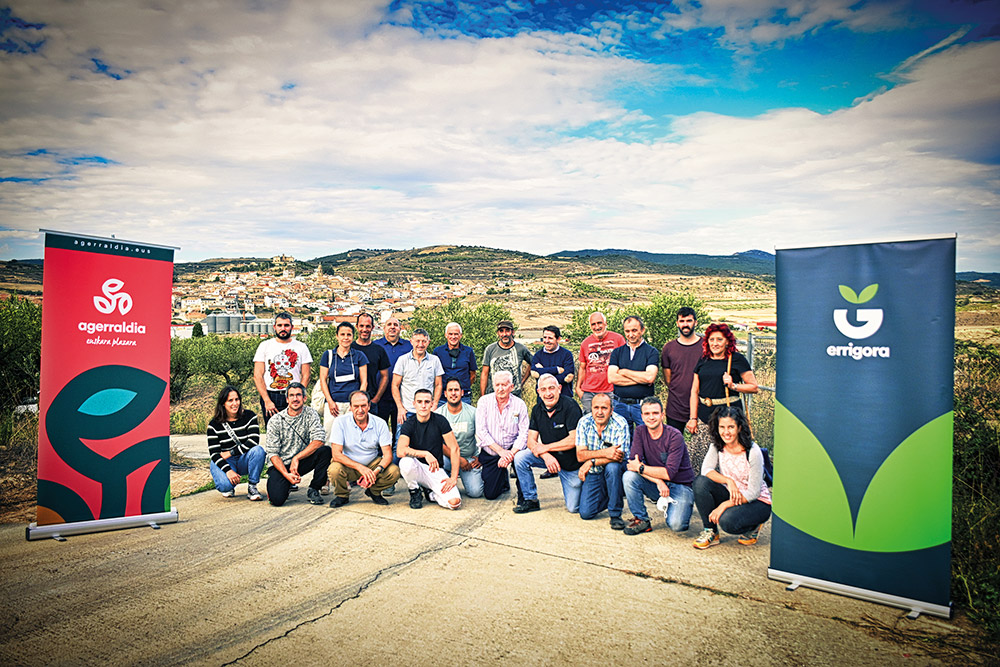
Errigoraren's campaign "Nafar hegoalde uzta euskarari puzka" started in 2013 with the subsidy of AEK, Sortzen Elkartea and Ikastolen Elkartea. In 2019, however, the Ageraldia group was created within the Errigora project. The association had a concern: What would be left in the centre and in the south of Navarre if this campaign for the Basque Country were to be suspended? In order to open up ways to ensure the sustainability of the initiatives, the question began to be asked from people to people and then to be able to respond better to the priorities and needs.
The Basques and Vascophiles of Navarre have expressed all kinds of wishes. Some of the demands are very concrete and specific: Basque days, visits to the producers participating in Errigorri through AEK, Basque week, illustrated album for boys and girls to make known the animals of the area and the landscape... Others are, or at least, more respiratory: butters, bertsolaris schools, Euskera plans at the producer’s workplaces, soccer teams, bilingual street allocation and meetings to reflect on the steps being taken in the normalization of the Basque Country in 2022.
The main exercise has been to listen to the citizens and the economic contributions received through the Queen are responding to the demands. Two long-standing initiatives are set out below.
Basque plans in the wineries
The 25 producers participating in the Errigora project know what Errigora is and know that as food sovereignty it also focuses on the Basque country. The minimum conditions were initially established: the products of the producers would arrive labeled in Basque and Spanish to the homes of the buyers and the web pages should be at least in Basque. The second objective has not yet been achieved, but they are on the way. The first company to address the Basque plan was Iturri Conservak. They started work in 2020 and, after this test, three others released the plan in 2021: Wineries Mendiko, Aristu and Lezaun. These are companies with very few employees, except in the case of collection. Among these permanent workers are those who have learned Basque and are endeavouring to use it more and more in their work. The greatest force is being exerted in use. The Emun cooperative has been hired to do so. Joseba Beltza and Leire Muxika, advisors of it, have made us a list of tasks: labeling, administration prints, catalogues, business cards, brochures that they deliver to customers in the markets and in the workplace itself... They had almost everything in Spanish and Emune had the mission of bringing the Basque country together and offering resources to respond to the needs of each producer.
All producers met on 1 October. When talking about the plans of Euskera, the head of Iturri Guarda conveyed to others a message of tranquillity, that the steps are not complex and that they will be able to maintain their daily pace of work, that they have achieved the goals in a simple way. Múgica says: "They're small businesses that live looking at the harvest and find it hard to look at the papers. The plan has enabled them to make decisions, think what they want and help them."
Muxika tells us that the results of the plan are widely disseminated and that they are obtained in the short term. In a fairly simple way you get the markers, the web, the roles of the administration, the leaflets... to be placed in Basque. The customer quickly realises this, among other things because producers are heavily involved in direct sales, either at fairs or at the workplace itself. Black has remembered where these Basque plans are being implemented and their reaction to shoppers: "We are talking about the lowest area in the center of Navarra, with absolute predominance of Castilian. In this area, some are giving way to the Basque country. Buyers are going to travel abroad and they see that the labeling of a work center is put by the Conservatory of Sources. They may be small gestures, but their influence in this field is great." The products of the producer Conservas de Fuentes have reached hundreds of homes through Errigorri. Those of the company often talk about how some have known their products on the house table to buy products that have come closer to work and how they value the relationship to be in Basque.
Emune consultants consider that this process can have a multiplier effect and affect several companies in the Basque Country. Navarran producers working in the same sector or coming from Navarre may decide that they should also address Basque as an added value. In the opinion of Beltza and Muxika, starting to Euskaldunize the world of work would be a way for the Basque Country to go beyond the family and educational sphere.
To date, four producers have an Euskera plan. This course starts another ten years and by 2023, 25 producers of Errigora will have a plan. Errigora is the main promoter of the plans and the producers take advantage of the subsidies of Euskarabidea to take steps in the normalization of Euskera.
Eighteen mortgages
The members of the Hearing have heard a sentence of this kind in many villages: "Children learn Basque at school, but then they have nowhere to use it." Parents wanted the buttocks, and so, last spring they started walking a lot. They had the collaboration of the Dindaia Foundation, the Sortzen Association and the Erbiñude Free Time Association of Tafalla for their dynamization. The course that has just begun has been organised in a different way, as the member of the Hearing, Haizea Lizarbe, has explained to us that the spring work meant that the volunteers of the Hearing were on the brink of memory. The Sortzen and Erbiñude associations will be responsible for talking to parents and designing libraries for each locality, as well as managing them. If in the spring eleven Ludotecs were organised, as from October eighteen will be held in the following localities: Abarzuza, Andosilla, Ancín, Peralta, Allo, Olite, Garinoain, Lumbier, Caparroso, Castejón, Lodosa, Oteiza, Sartagudo, Sesma, Viana, Tafalla, San Martín de Unx and Mendigorría.
As they believe with other projects, they would also like the mortgages to be permanent, not initiatives that will be lost from one year to the next. This is what they want to explain to schools, parents and city councils, that is, that even if there is no Hearing, the Butters do not close the doors. For example, the Ludoteca de Tafalla, which received the children in the spring, has had the subsidy from the city council, which has assumed half of its cost.
Boys and girls between the ages of 3 and 6 have been mainly involved in the butcheries and the intention is that older boys and girls should be involved from now on. Member of the Haizea Lizarbe Hearing has worked intensively in the management of mortgages and sees the role of children's games clear: "That the Basque does not stay in school, that they have the possibility of having free time in Basque. Today there are very few extra-curricular things in Basque in this area".









